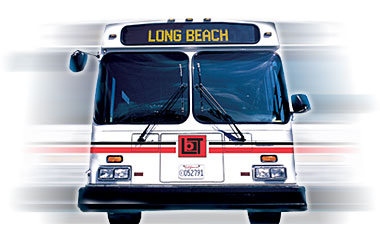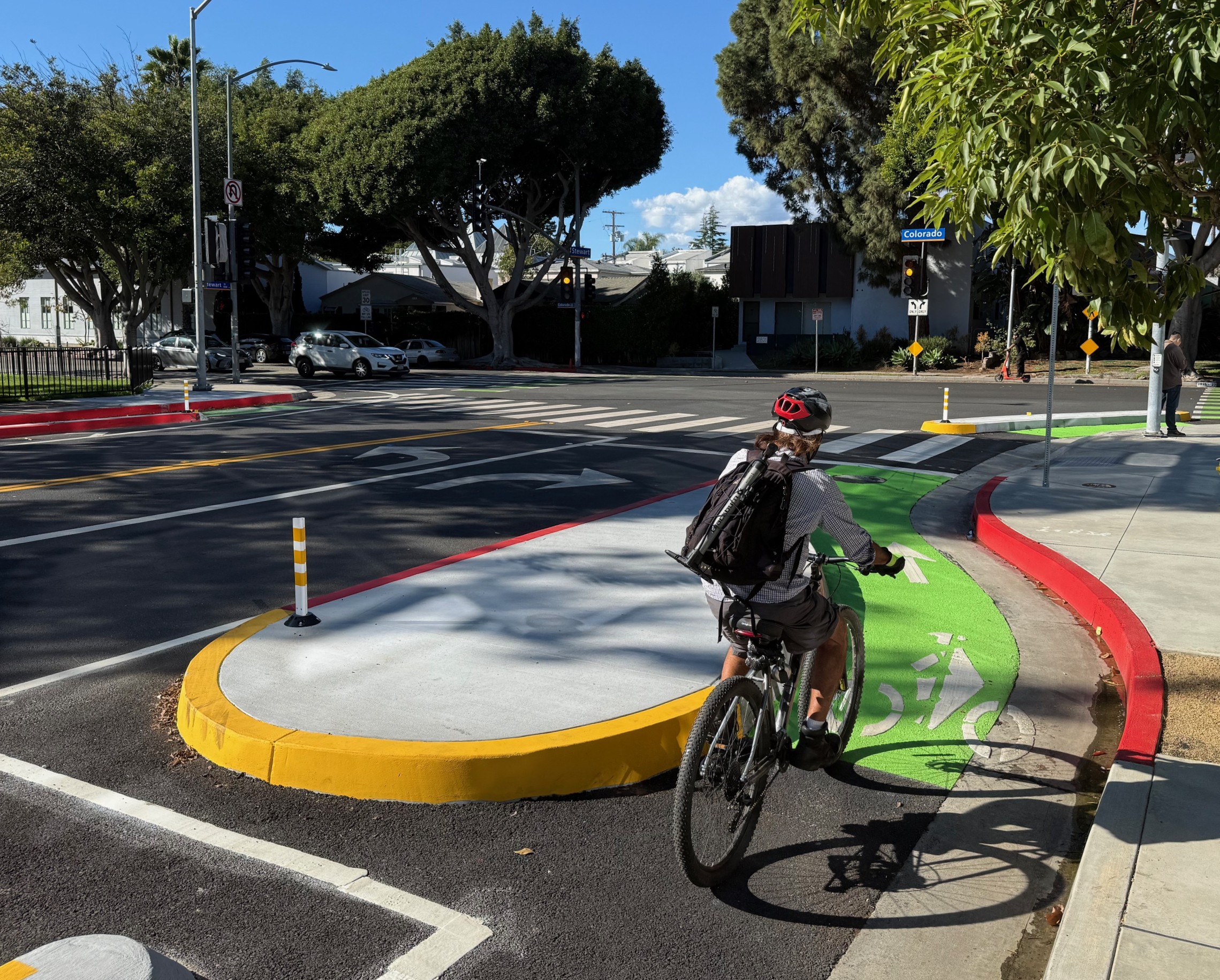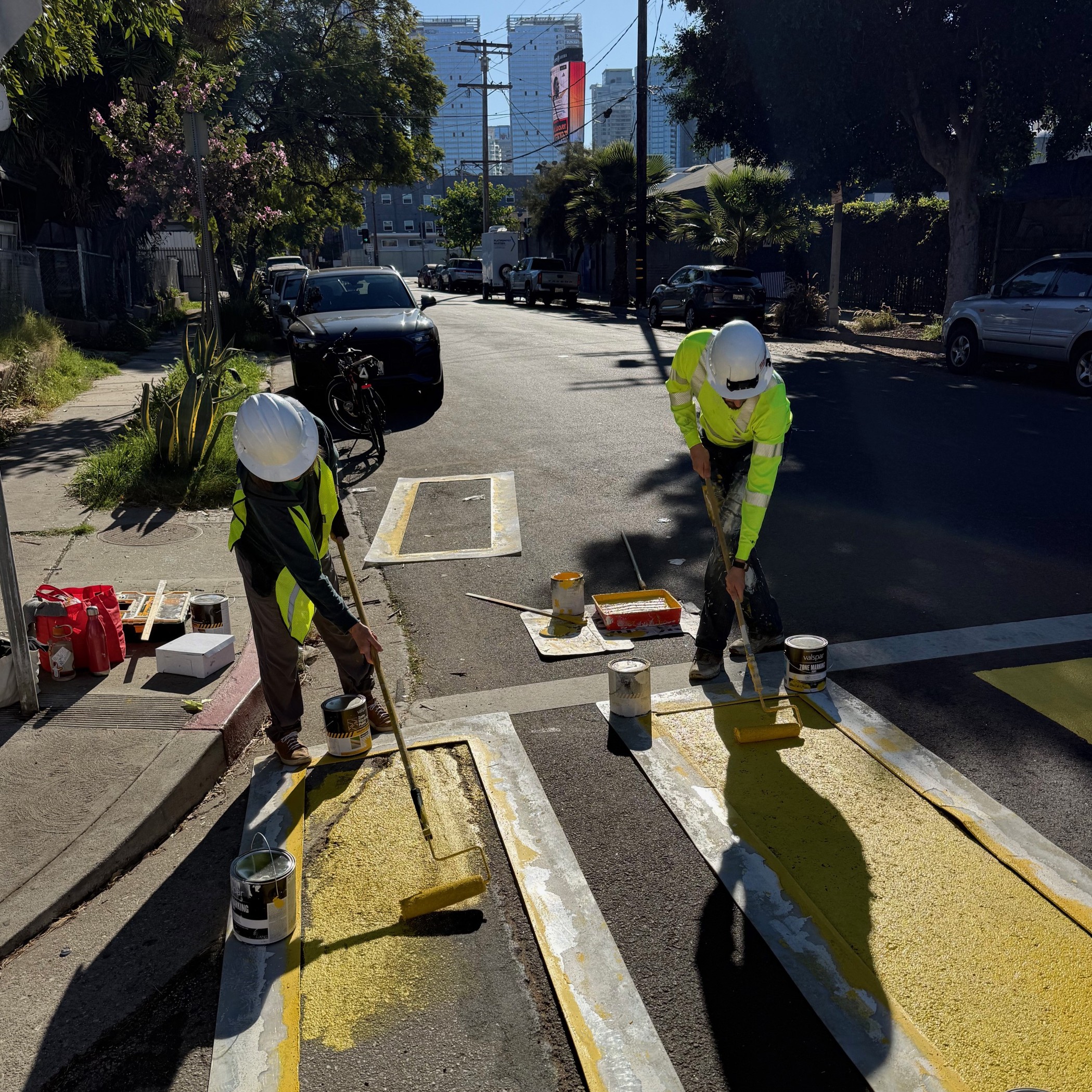If you've ever spoken to someone who is physically disabled—any one of the 650 million who are estimated to be living with disabilities on Earth—though resilient, there is still something a bit disconcerting about boarding a public bus.
Even in a transit system that is as efficient and progressive as Long Beach Transit.
And as I was taking the 121 along Ocean, I did something I rarely do as an introvert: I removed my headphones and asked someone in a wheelchair just precisely what their experience was.
"You can't help but feel, 'Here I am, holdin' everybody up,' y'know?" said Maria, a 53-year-old paraplegic.
When I had asked her to offer me her last name, she skeptically looked up and succinctly informed me that "there ain't no need to give you my last name unless you plan on giving me a new one." I was taken aback and my expression had probably shown it. Maria, however, moved on like a train with no breaks.
"Clearly, I'm not a bullshitter—and judging from this situation right here, I don't think you are one either. Look around: we all have places to be and we are all hoppin' on this bus together and… Of course, if you're like me, you get beyond it; you have to. But still, there's something about having to stop the whole routine of everybody else just to get someone like me on the bus."
Beyond this short exchange, Maria didn't want to talk—and rightfully so. Someone shouldn't have to defend accessing basic rights due to a biological disposition of their abilities; disability does not translate into inability. Her point, more importantly, was not driven by a need; she was far from victimizing herself or demonizing the all-too-human selfishness that overtakes each of us when we are trying to get from Point A to Point B.
And though the American Disabilities Act (ADA) widely swept away previous legalities that hindered those who were disabled, there is still an unneeded sense of humility that many disabled people carry with them because of the largely misconstrued concept of what "disabled" means for able-bodied folks: handicapped, crippled, even retarded.
In short, horrifically pejorative conceptions that perpetually drive them to sadly and inappropriately question their own worth; to relegate them to the role of holding-up rather than lifting-up. And it explains why, for the 2 million people with disabilities who never leave their home, 560,000 never do so because of transportation difficulties.
"The single greatest ideological threat to the disabled community is the perception that they are not of value to society," said activist Odunola Ojewumi in an opinion piece. "People living with disabilities are fighting an insurmountable battle to etch a place for themselves, within a society that perceives them as inferior."
Though this problem is largely complex, when it comes to public transit, there are solutions—and one of the most obvious and simple solutions is to alter the way in which those with disabilities are properly secured while in transit on the bus and provide areas which don't require securement at all.
Enter L.A. County Metro: approving a contract in February to New Flyer Industries for 550 new CNG buses to replace their soon-to-be retired fleet built between 1998 and 2001, they also added another brilliant requirement in July. For $3.5M, this new fleet—set to be complete by FY2015—will be equipped with wheelchair passenger travel innovator Q'Straint's Q'Pod stations.
Here's the brilliance of Q'Pod: it's designed by a company whose only focus is that of those who travel in wheelchairs—and in this sense, they aim for quicker securement times and lower dwelling time for the bus. The Q'Pod is innovative on several levels. Firstly, it is the first wheelchair station that doesn't require anything but bolts, immediately eliminating severe costs for transit authorities; this means that they can be either installed as the bus is being manufactured, when they're delivered, or onto buses which are currently in operation. Secondly, With an integrated shoulder belt, window brackets are no longer needed.
Even more, all the new buses will come with two rear-facing wheelchair areas which do not require securements. This makes them officially the only buses in the entire nation which have two such areas.
Too often, when we are battling the many problems of urbanization and how to deal with transportation, we individualize our experiences because for many us, particularly the privileged, the transportation experience has been largely carved by the space of an individual vehicle that we control. This privacy then transfers over when we take a bus and we then begin to quantify problems that do not apply to us: "Spend as little as possible on people with 'special' needs because they hinder everyone else" or "Ugh, really? TWO people in wheelchairs? I have to… Stand?"
And I'll simply be frank: as we approach the new urban landscape and as more of us choose public transit, our individual perceptions need to be left at the bus stop. Public transportation is precisely that: public—and it means that we cater to all, not just some. And though you may feel bothered or irritated or have this sense that your time has been interrupted, what you don't perceive is how your face and your expression and your sentiment transfer to the person you're wrongfully blaming for the hold up.
Their experience is something which is indescribably inscribed into their every moment of existence, not just their morning commute. It is plagued by the persistent hope that the space they enter will have pathways that they can access. It is pervaded by a continual hope that they won't "burden" anyone. It is surrounded by a world which is consistently moving in a way that they sometimes cannot keep up with.
In this very philosophical sense, Metro should be applauded. It is beautiful to think that a transportation board considered these experiences on a level that doesn't just cater to ADA requirements, but ultimately benefits everyone.
Long Beach Transit did not return request for comment as to whether their current procurement of BYD electric buses will be equipped with Q'Pod-like securement systems or whether they will have wheelchair spaces which do not require securement.







